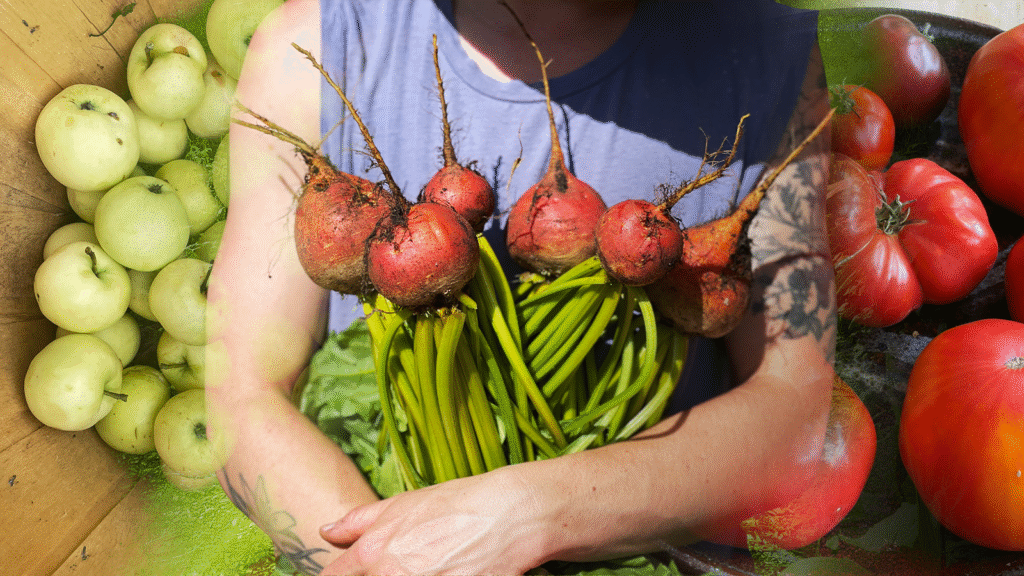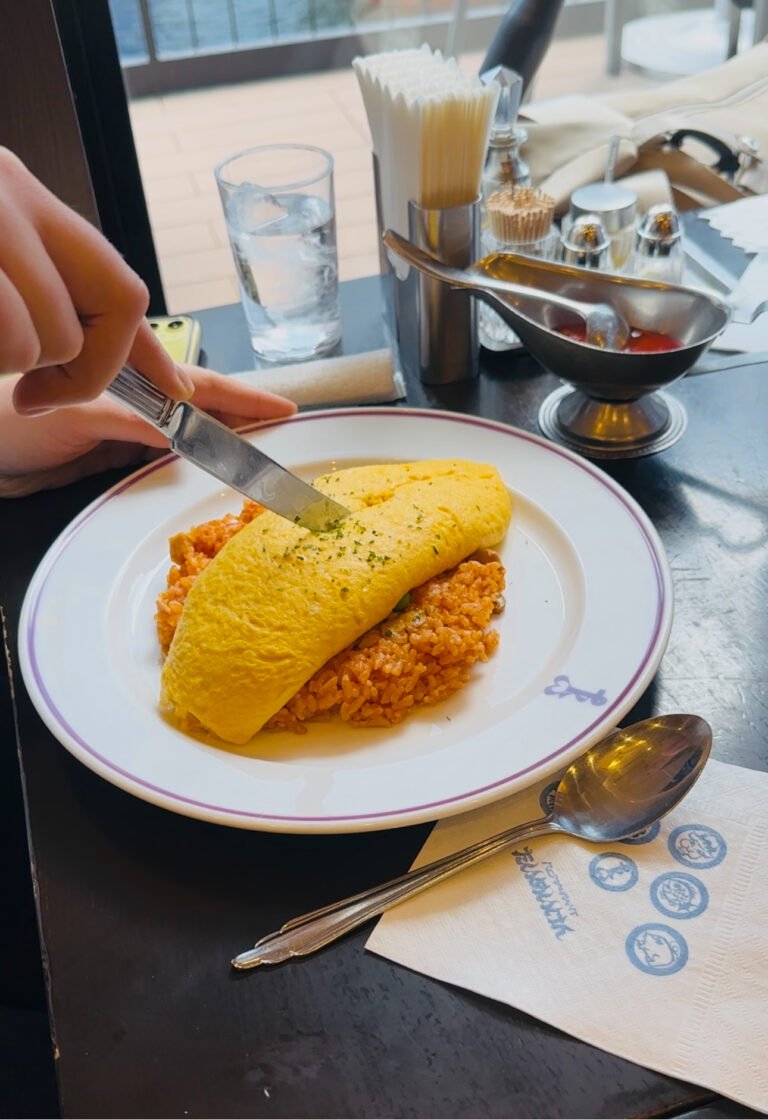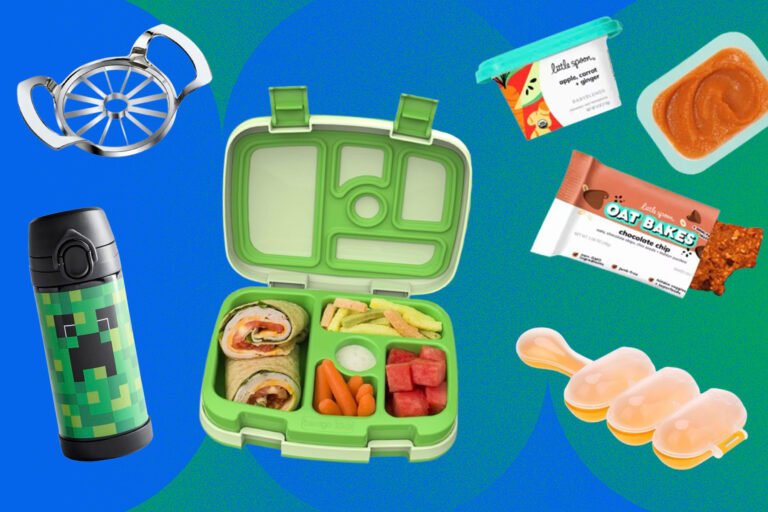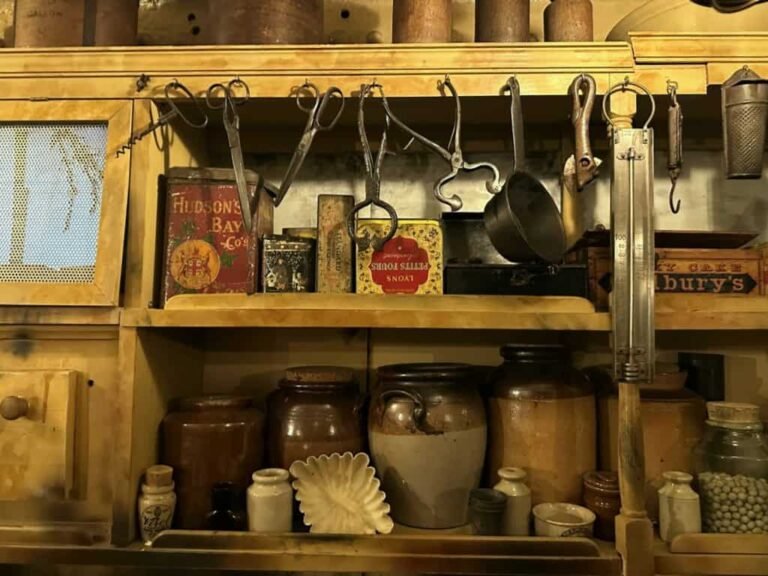

Back when I lived in cities during my twenties, I’d often repeat a routine that went like this: I’d decide to buy some herbs to grow on my windowsill or my fire escape. In Providence and in Iowa City and during my five years in various Brooklyn apartments, I’d get some cilantro going, basil, parsley, maybe sage and thyme. Then I’d watch as they rapidly flowered, or withered, and all eventually died. I never knew why any of this happened, nor would I ever find enough time to do better regarding the cultivation of plants.
Then, one day soon after this president’s first inauguration, I saw a farmhouse for sale online three hours away in the Catskills, and — long story short — convinced my partner to move there, somewhere way out in the forested green mountains. Our land, it would turn out, had overgrown garden sites and also, as I gathered those first months and years, an apple orchard and a very productive gem of a peach tree, two less-productive pear trees, a rhubarb patch, another bed with asparagus, chives on the front steps, various mints by the garage. There was also a sugar maple “bush,” as locals called it, which was strewn with detritus from having previously been tapped, something the Californian in me felt utterly clueless about. Locals would glance at the bush and ballpark how many gallons. At first it’d take me a beat before I realized they meant of syrup.
Why was I always so interested in gardening? I both did and didn’t know. At my public elementary school back in Northern California, we had a garden-bed-per-classroom — though I mostly remembered boys smashing snails with trowels, or the burst of pure pleasure that’s eating a just-plucked raspberry. But it’s not like I remembered anything about how to grow food from back then.
I had also, since as long as I can remember, known I was trans. Soon after I moved to the Catskills at age 30, I started coming out. At last I was somewhere so pleasant, so peaceful, I couldn’t help but finally let my guard down and my truth out — whatever and all that might bring.
The reality of gardening can be so much muck and mundane. I would learn that it’s endless repetitive work, fueled by trial and error. That first year, I asked more knowledgeable friends what the hell to do. Many said versions of, “You can only learn by doing, by working your specific plot, your own specific beds. You’ll learn your climate, your season, your soil, your own best ways.”
A montage scene flashes through my mind, those first few attempts at planting gardens here. My clumsy first tries at sowing seeds — how I just scattered everything all together, lettuce and tomatoes and herbs, everything too crowded. I let the lettuce bolt and it all became slug-infested. My tomato fruit were small and green; I wondered why.
In those days, I often felt the extreme dichotomy of listening to the news about the latest transphobic horror, versus the mountain I’d look out at, across the meadow, from my garden.
The second full year, I cleared the second site, the one that was out in a meadow, larger and more exposed to the elements, even more overgrown with stubborn goldenrod and grasses. I pulled and pulled at their roots with a pitchfork the previous owner had left behind. I hauled dirt and more dirt and then more dirt, and I also hauled mulch, chipped woods for paths.
As I worked those first years of that first Trump term, I often listened to the endless doom that was the news. I also found How To Survive the End of the World, a then-new podcast by sisters Autumn Brown and adrienne maree brown. They often discussed Octavia E. Butler’s The Parable of the Sower, and so I listened to that too, a classic I’d never read. It’s a story about apocalypse and seeing it coming, one wherein the narrator was storing seeds for her eventual attempt at survival — a situation she predicted when most around her still would not. The narrator’s religion, of sorts, has one guiding principle: God is change. And to me, the religionless person that I’ve always been, this made as much sense to me as anything.
In those days, the newly egg-cracked-type trans guy in me (to use a metaphor that is cliché amongst trans folk — but perhaps less-known amongst the rest of you — for our messy gooey experience of emergence, however far into life) often felt the extreme dichotomy of listening to the news about the latest transphobic horror, versus the mountain I’d look out at, across the meadow, from my garden. I’d hear how l this president, his party — really it could feel like the whole world hated me, apparently — but then I’d tune back into wrenching dandelions from my garden beds with a pitchfork.
As the years passed and our society, from my increasingly out-as-trans perspective, grew only more ominous, I sowed my third, my fourth gardens. I ate better tomatoes and better lettuce. I grew scrawny carrots and figured out how to make them less scrawny. I ate increasingly well — increasingly became one of those cooks whose whole menu is directed by the seasons. But I’m also a perfectionist. I hate losing. I hate “wasted time.” Turns out a garden doesn’t care about any of this; nature gives no fucks.

I don’t know when I first became conscious of “trad wives” as some supposedly new concept — this idea that, in particular, white cis straight women were suddenly making feminine-coded pursuits like permaculture and canning and other older slower ways cool again. In more recent years, these “traditional” ways have been hard-coded as part the domain of conservatives; people who likely hated the likes of me.
Sure, there’s long been traditional types who practice conservative faiths and adhere strongly to so-termed “traditional” visions of binary gender. But as a kid back in West Marin growing up with next to zero conservatives in sight, I never saw these and other so-called “trad” activities as inherently conservative. If anything, as a younger person, I saw such pastimes as throwback in the hippie sense of the Bay area’s recent history, the one I grew up in the aftermath of, and remained obsessed with.
Throughout these years, I’ve chuckled when such now-termed “trad” activities like gardening without pesticides or baking bread with a starter were reported upon as if they were somehow recent discoveries (and not literally old ways, rediscovered, and always popular to some), or as if some white conservative cis straight women on TikTok had just invented them. Because what did that make me, a trad trans?
In truth, there’s a long tradition of marginalized people, specifically trans and left-leaning and indeed queer people taking to the countryside, to the hills, to the woods. A lot of us left-leaning rural denizens have done so for similar reasons as right-leaning folks: We like growing our own food because we want to eat healthfully and at a relative savings — though with the caveat these practices take time, space, and startup costs, all of which I know is a privilege. And because, sure, we want to become spiritually connected to the earth.
There’s a long tradition of marginalized people, specifically trans and left-leaning and indeed queer people taking to the countryside, to the hills, to the woods.
For queer people in particular, we’ve long sought life in the Catskills and places like it perhaps because out here we might live in peace. Perhaps we’ve got other reasons too, like the fact that being alive in this society hurts many of us just for being who we are. Perhaps it’s the fact that green places are good for healing hurt souls (copious research backs this, as I’ll be unpacking in my in-progress book on the future of mental health care). Gardening folds nicely into my particular rural life here and my slow progress as I write books, and my lack of a day job or kids. The garden helps me stay occupied, even when I’m mostly waiting on some email or doomscrolling, maybe internally spinning out.
I chuckle because what peace I feel, what rightness, embracing such not just “feminine” but even faggy activities as gardening and baking, as the out queer man I now am. I have been attracted to all these things since as long as I can remember. Growing up, I envied families who grew tomatoes in their suburban backyards or made blackberry jam or whose homes smelled of Bread Machine bread. I knew deep down I craved such lives.
So often my garden nowadays is a reflection of my own mental wellbeing. Sometimes I give it tons of my time and attention. When I’m busy, my garden can become neglected. Once or twice it’s even gone to total shit (as has, basically, my life). But now, given all the good habits I’ve built, I find it can do pretty all right without me.
Some locals here call outsiders “flatlanders” because they view us as alone in these mountains — and we kinda are. If I were to be so fortunate as to persist here, sowing gardens until I am 100-plus, I will still be a flatlander according to them, though I think they respect me more now that I’ve hung in here eight years. Sometimes I’ll be chatting with some new person, trans and/or queer, who lives in a more familiar New York or San Francisco or LA; they’ll ask how I like life here, seeming surprised at how I live. I answer I hardly remember my life before now, that’s how much it’s become entangled with me and me it.
My garden forces me to get physical. My garden helps connect me to the reality that not everybody is as terrible as it says on the news, either. I’m often hosting others, especially my queer and trans community, sharing in the abundance in the form of frittatas, salads, pies. Just the other day a farmer friend swung by, himself cis straight and a church-going Christian (to again, explode all stereotypes) and we traded some of his eggs for some of my still-abundant garlic supply, as we’re often doing. Me and my neighbors, we’re often trading, as is common amongst us rural folks.
Trans people like me are threatened with so much violence and disconnection, especially lately; my garden has been a force for the opposite. I’m regularly texting my friends, neighbors, even my real estate agent from all those years ago, offering extra squash or kale or tomatoes. My garden is a reason people come and see me in person, to chat even just for a few minutes, something so small yet vital for someone as isolated as me (rural, trans, estranged). It forces me to stay connected to this tremendously beautiful place. I’m never not in love with it this place. I always feel so immensely lucky to get to sow my garden here. There’s not a day I’m here where I don’t fear losing it all.
These last months have been hard. There’s been the excessively nightmarish national political context, yes. I’ve been recovering from a surgery, one I scheduled (after much procrastination) in a great panic after November’s long-dreaded result. My healing progressed slower than expected, which I learned is not uncommon for trans men; I couldn’t even walk my own dogs let alone lift a gallon of milk without asking someone’s help. My energy was zapped, besides. All considered, the psychological toll of this was immense.
Around March I was at least strong enough to get my first trays of seedlings going under grow lights. Eventually I could get outside to survey the gardens. I had done a decent job getting everything cleaned up and put to bed last autumn, probably just in case. Some yellowed corpses of kale and Brussels remained. A third of my hoop trellis had collapsed from the snow and the winter’s harsh winds. One bin of spinach had randomly survived.
These times are unspeakably frightening, especially if I just tune into the despair. But there’s also other realities, like that of my garden. There’s the cycle of germination and growth, of decay and hibernation. There’s the truth of timing being everything, the benefit of having patience. There’s the lesson I continuously learn: that small, intentional acts do add up.
I set to work.


